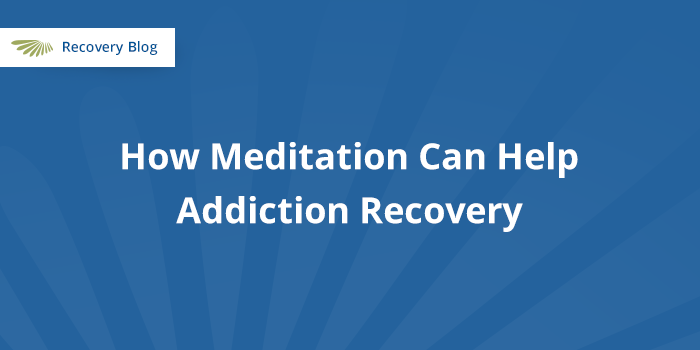Can I Take Prescription Drugs During Recovery?
Some people in recovery from drug addiction may also suffer from other mental or physical medical...

Substance use disorders are complex and sensitive but a comprehensive treatment plan that includes support groups and medical assisted treatment can help.
Rehabilitation programs often use meditation and holistic approaches to addiction treatment in combination with traditional and evidence-based treatment, such as group counseling and individual therapy. Meditation can provide powerful and additional support during your recovery process.
What is Meditation?
 Meditation is a practice that dates back to thousands of years and is a means of transforming the mind. It encourages you to develop concentration, clarity and emotional stability. As it focuses on the mind-body connection, it helps you stay positive, calm and focused.
Meditation is a practice that dates back to thousands of years and is a means of transforming the mind. It encourages you to develop concentration, clarity and emotional stability. As it focuses on the mind-body connection, it helps you stay positive, calm and focused.
Meditation can be done in various different forms. You can find a quiet place where you can either sit up or lie down and focus on a combination of your breathing, an idea or a word. It helps you focus on mindfulness, awareness of present feelings, thoughts, and your physical sensations. But apart from focusing on your breathing or a specific thought, the are two frequent variations.
1. Mindfulness Meditation
Mindfulness meditation allows you examine your feelings, thoughts and experiences and carefully act on them.
2. Meditative Exercise
Most often, meditation is coupled with physical motion, such as yoga. In a meditative exercise, you move through a series of poses designed to increase flexibility, strength, and breathing. The postures help improve your self-confidence and physical well-being. The breathing techniques promote relaxation, which relieves you from stress, frustration, and other negative emotions.
How Can Meditation Help In Addiction Treatment?
Meditation improves your inner peace, self-awareness, mental functioning, and helps you detach from thoughts and impulses, which can help reduce cravings and prevent relapse. It lays a positive effect and reduces the levels of stress and anxiety which is of utmost importance in recovery. For example, you may use it to slow down your breathing and calm your nerves. It can help reduce the negative feelings that compel you to reach for substances. You may even use it to connect with spiritual ways during recovery.
Besides all the advantages stated above, meditation improves your overall mental and physical health by:
The best part about meditation is that, it easy to learn and can be done anywhere and at any time. If you’re recovering from a substance use disorder, meditation can be helpful if it supplements your treatment program. Talk to your therapist about your treatment options and don’t forget to ask them about how meditation can assist you.
Some people in recovery from drug addiction may also suffer from other mental or physical medical...
For those who have been injured in an accident, prescription medication can be a godsend. They...
Because of the rush around the holiday season, we often forget that Thanksgiving is not just about...